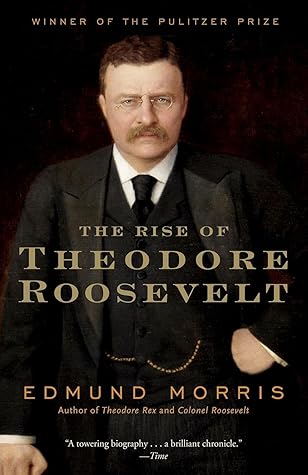More on this book
Community
Kindle Notes & Highlights
Read between
May 27 - June 17, 2018
no national life is worth having if the nation is not willing, when the need shall arise, to stake everything on the supreme arbitrament of war, and to pour out its blood, its treasure, and its tears like water, rather than submit to the loss of honor and renown.
Roosevelt was surely reminded that he had assumed his duties as Assistant Secretary of the Navy on 19 April 1897. It had taken him exactly one year to bring the war about.
Privately, to his old Assembly colleague Henry L. Sprague, he wrote: “I have always been fond of the West African proverb: ‘Speak softly and carry a big stick; you will go far.’
Yet as Governor, Roosevelt had shown himself again and again willing to support labor against capital, and the plebeians in their struggle against his own class.
Like TR, FDR went to Harvard, edited a college newspaper, studied at Columbia Law School, entered the State Legislature in his twenties, and then became successively Assistant Secretary of the Navy, Governor of New York, and President of the United States. He also married TR’s niece.
A comprehensive study of TR’s whole career as a publicist has yet to be written: should any skilled historian undertake the project, it would be of revelatory significance and interest.


